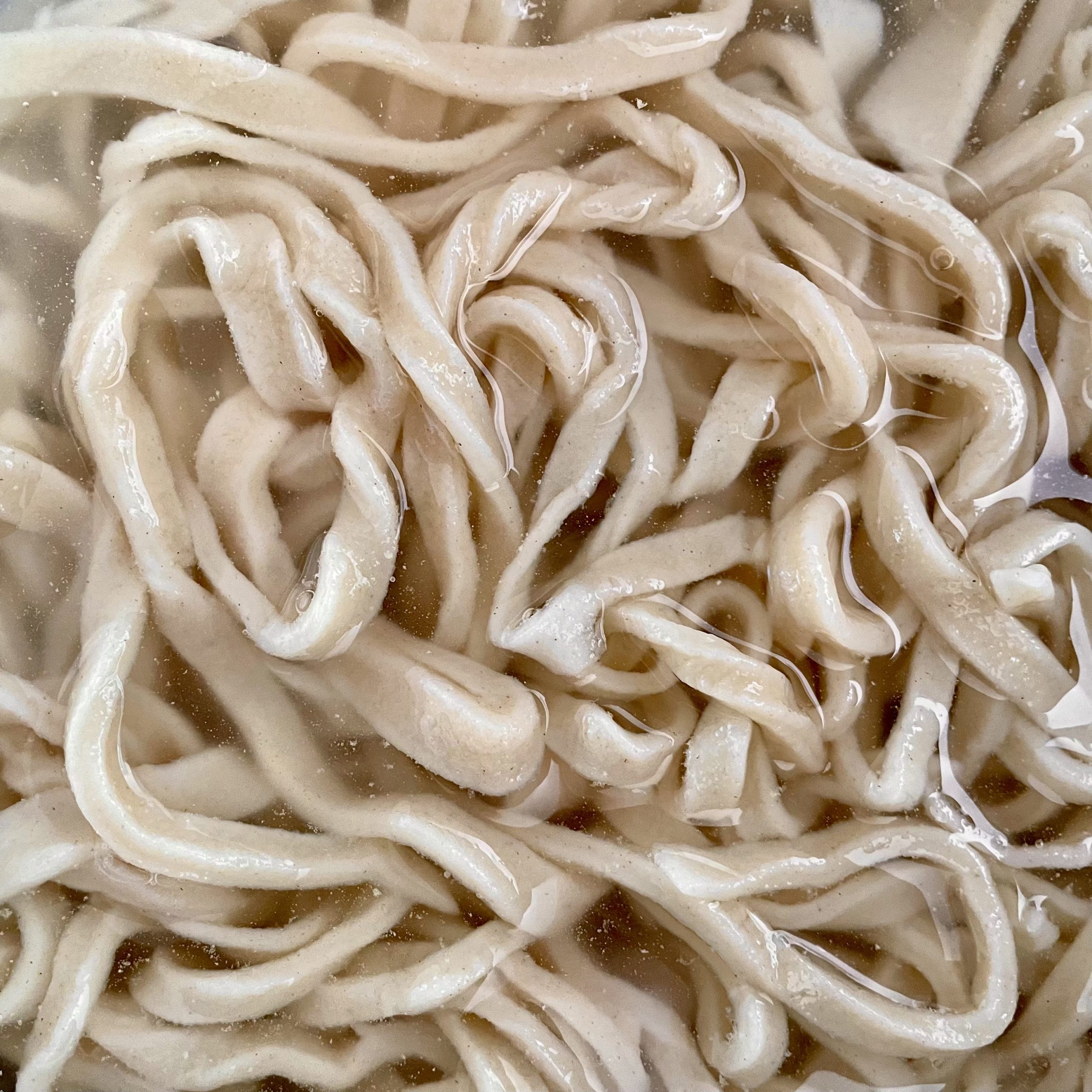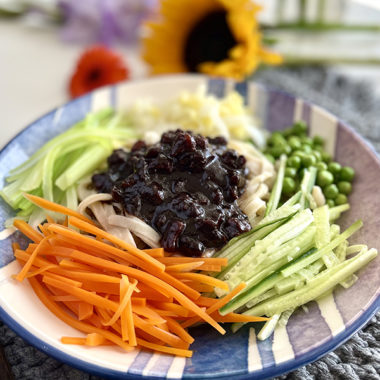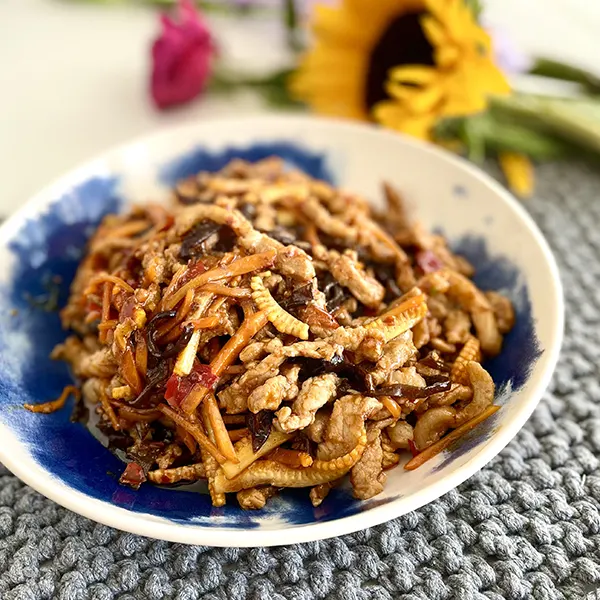Welcome, Noodles Lovers! In this post, we are going to make yummy, super chewy handmade noodles together. In northern China, we love different noodles dishes and good handmade noodles are very important to achieve that perfect texture.
Once you nail this one, there is a whole new noodle world waiting for you to discover. Literally, almost anything you see in your fridge can be turned into a bowl of tasty noodles. My all-time favourite sauces are Zhajiang (炸酱 zhà jiàng), Tomato & Sesame sauce (西红柿鸡蛋&芝麻酱 xī hóng shì jī dàn & zhī má jiàng ), Aubergine & Egg sauce (茄子鸡蛋 qié zǐ jī dàn ), Pork & Pickle sauce (猪肉榨菜 zhū ròu zhà cài ), Beef Stew sauce (红烧牛肉 hóng shāo niú ròu ), Dalu sauce (打卤 dǎ lǔ), Luffa & Prawn & Egg sauce (三鲜 sān xiān).
So, the key to making chewy handmade noodles at home is egg white and baking soda (plus lots of patience). But other than that, the process is very easy to master even for people with no prior cooking experience.
Handmade Noodles (Super Chewy)
Course: StaplesCuisine: ChineseDifficulty: Easy4
servings1
hour5
minutesAn authentic Chinese recipe that shows you how to make handmade noodles. These are super chewy and will easily make you ditch store-bought.
Ingredients
Plain flour 500g
Salt 3g
Baking soda 1/4 tsp
Egg white from 1 egg
Water 205g
Directions
- Mix 500g plain flour, 3g salt, ¼ teaspoon baking soda, 1 egg white together. Prepare 205g water, and add the water in three go (different brands of flour may react differently with water, so you may need to adjust the amount of water accordingly). After mixing together, it should look roughly like this.
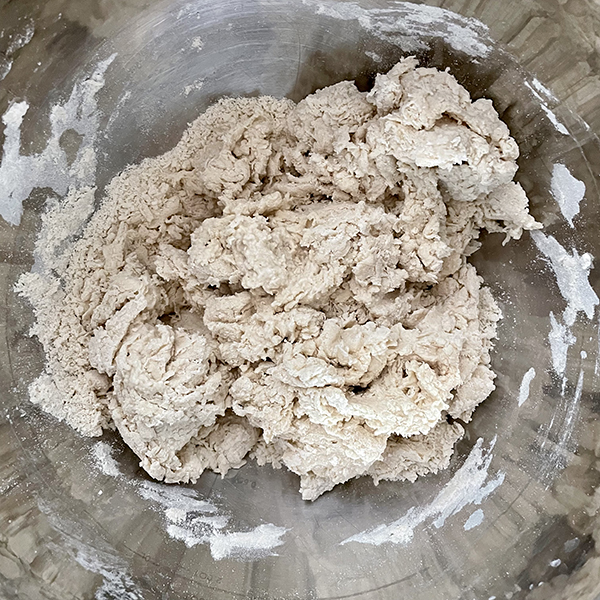
- Knead the dough with your beautiful hands for 3-4 mins. You should feel a bit of resistance and the surface normally would be quite rough at this stage. Cover the container with cling film and let the dough rest for 15 mins.
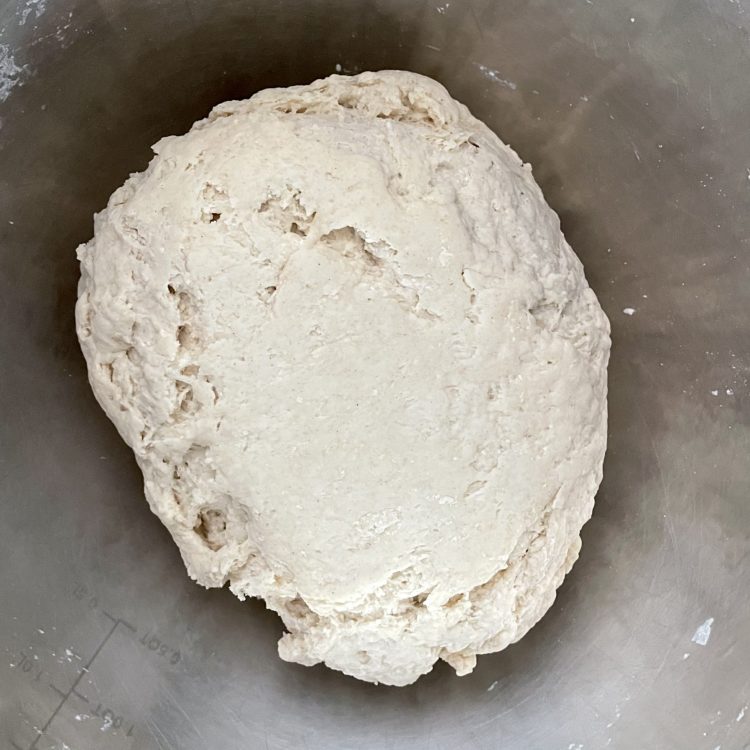
- Open up the cling film, knead the dough again for 3-4 mins, and put the cling film back. Let it rest for another 15 mins. As you can see, the dough is still a bit rough at this stage.
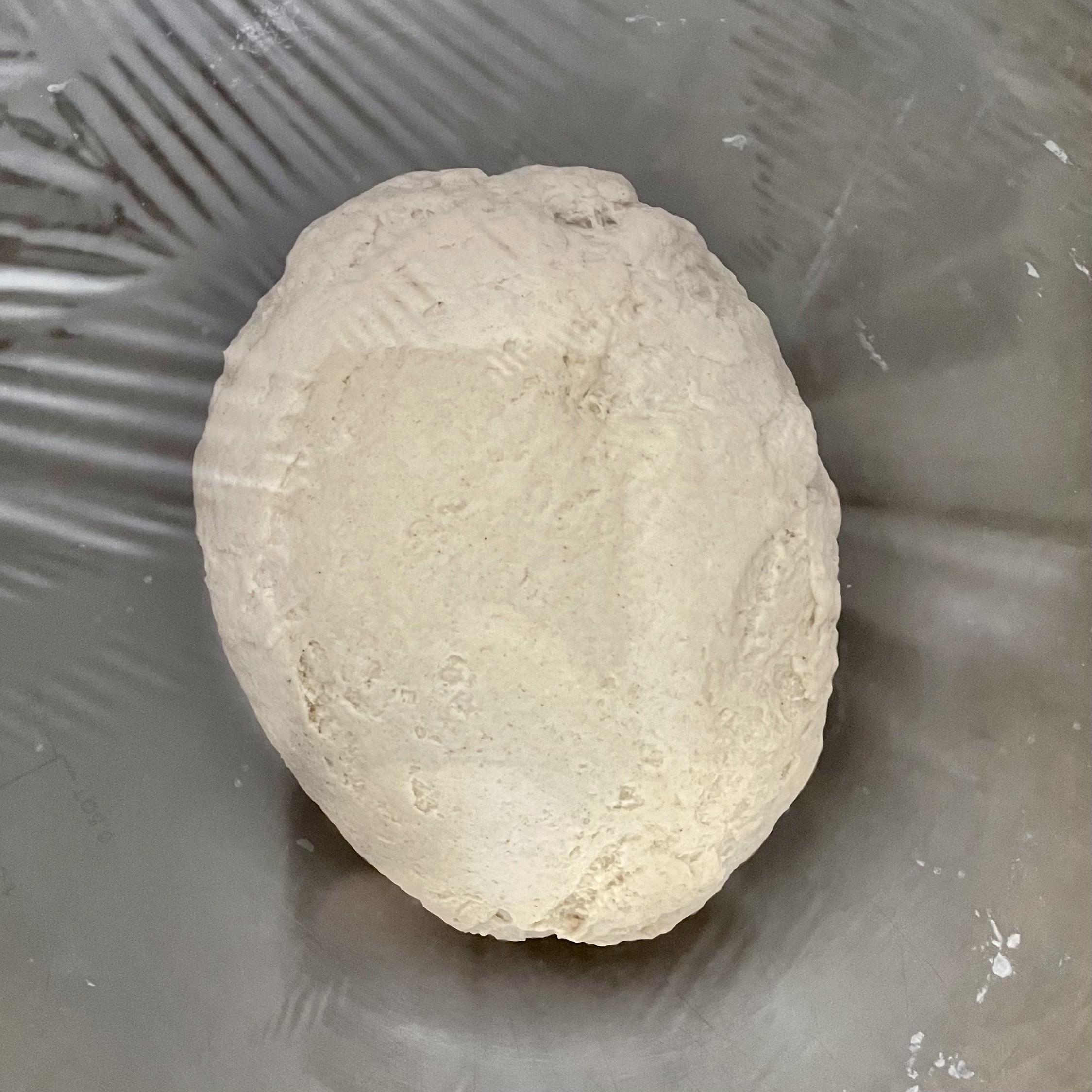
- Open up the cling film, knead the dough again for 3-4 mins, put the cling film back and let it rest for further 15 mins. Now the surface of your dough should be much smoother, and you should feel more resistant when kneading.
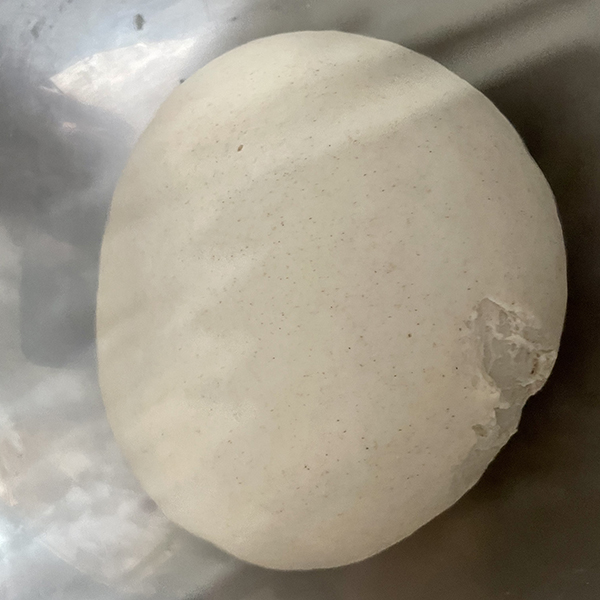
- Now the dough is ready! Take it out, knead it a bit to make it smooth and round, sprinkle some flour on your dough as well as your cutting board.
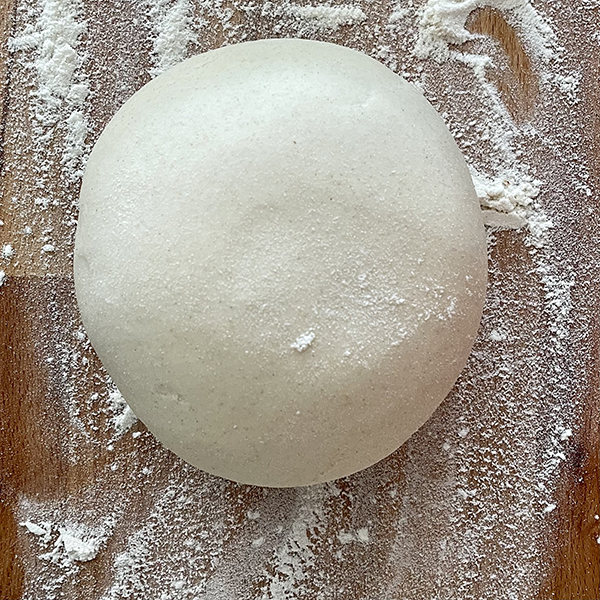
- I don’t have a lot of space to work with, so I cut my dough into 2 and work on them separately.
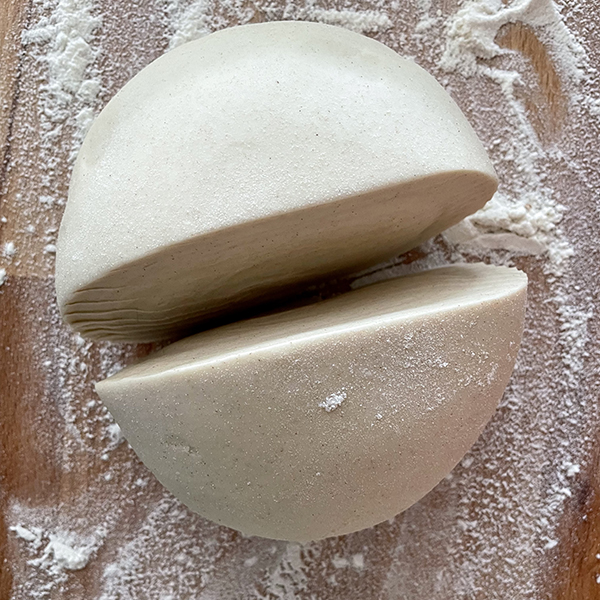
- Take half of it, knead it again until it is smooth and round. Spread flour on the cutting board as well as your dough like before. Then, take your rolling pin out, and start rolling!
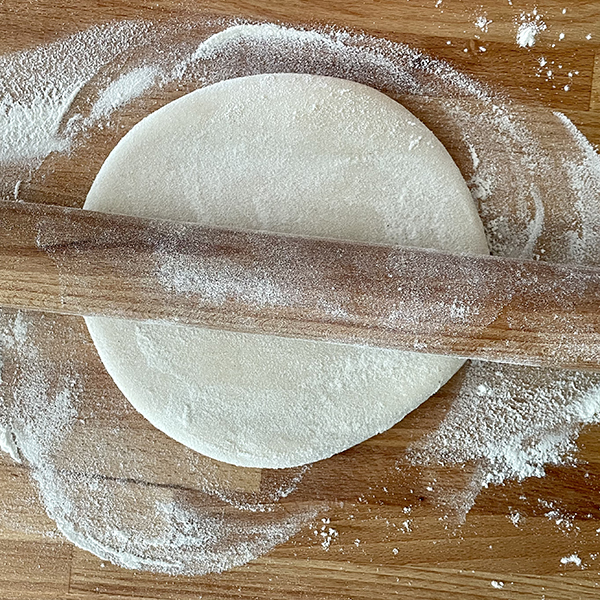
- It’s not an easy job (unless you own a noodle-making machine), so keep going until it becomes a 2mm thick flat piece. Make sure you keep spreading flour on your cutting board and your dough while rolling.
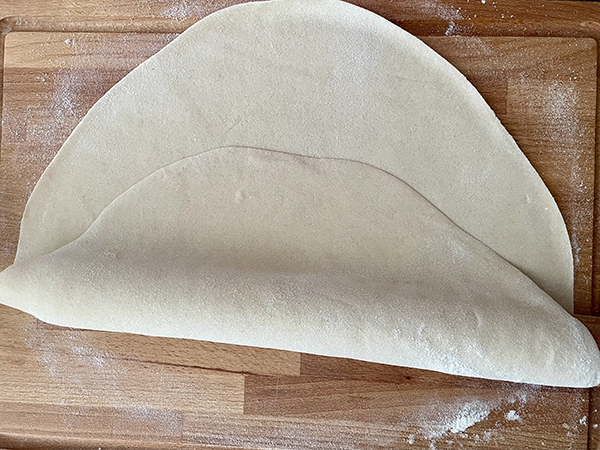
- Fold it like this with flour between layers.
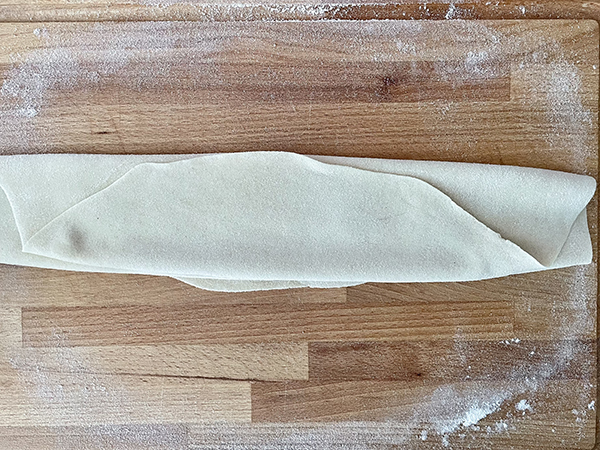
- Cut into thin slices, or thick ones if you prefer.
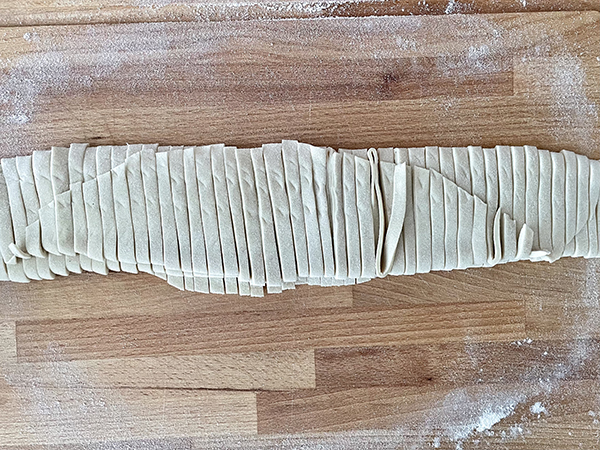
- Open them up nicely.
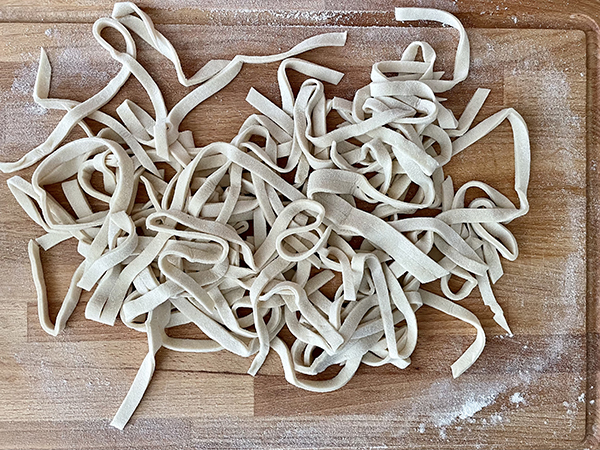
- Now they are ready to be boiled! Remember, freshly handmade noodles don’t need long in boiling water. Start with 3 mins (if thinly cut), normally it should be ready under 5 mins.
Variations
Now there are two preferred ways to eat handmade noodles in China: Guotiao (锅挑 guō tiāo) and Guoshui (过水 guò shuǐ).
Guotiao is to eat the noodles as they are, without running them under cold water. This way the noodles are better wrapped in your sauce, however, you need to start eating immediately. Otherwise, your noodles will all stick together in a not very appetizing way.
Guoshui noodles literally mean you run your noodles under cold water. This process makes the noodles quite refreshing, especially in the summer season.
Try It Yourself
And just like that, you’re ready to make your own handmade noodles! Do let us know how it goes by leaving a comment. If you happen to get stuck at any point, be sure to leave us your questions below as well and follow us on Instagram for more Chinese food pictures.

